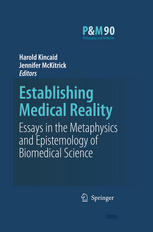

Most ebook files are in PDF format, so you can easily read them using various software such as Foxit Reader or directly on the Google Chrome browser.
Some ebook files are released by publishers in other formats such as .awz, .mobi, .epub, .fb2, etc. You may need to install specific software to read these formats on mobile/PC, such as Calibre.
Please read the tutorial at this link: https://ebookbell.com/faq
We offer FREE conversion to the popular formats you request; however, this may take some time. Therefore, right after payment, please email us, and we will try to provide the service as quickly as possible.
For some exceptional file formats or broken links (if any), please refrain from opening any disputes. Instead, email us first, and we will try to assist within a maximum of 6 hours.
EbookBell Team

4.3
78 reviewsMedicine raises numerous philosophical issues. Most discussed have been debates in bioethics. Yet contemporary medicine is also a rich source of controversies and examples that raise important issues in philosophy of science, philosophy of biology, and metaphysics. This volume approaches the philosophy of medicine from the broad naturalist perspective that holds that philosophy must be continuous with, constrained by, and relevant to empirical results of the natural and social sciences and that believes that the history, sociology, politics, and ethics of science provide relevant information for philosophical analysis. One traditional topic covered by several of the contributions is the nature of disease, but the approach is largely from the philosophy of science rather than traditional linguistic analysis. The complex interplay of epistemological and sociological factors in producing evidence in medicine is discussed by chapters on collective medical discussion making, experimental medicine, " genetic" diseases, mental illness, and race and gender categories. The upshot is a volume that ties medicine to contemporary issues in philosophy of science and metaphysics like no other.
‘…An excellent collection of essays in the philosophy of medicine. Whereas most philosophical work about medicine has been concerned with medical ethics, this volume focuses more on key questions in epistemology and metaphysics, although many of these are also relevant to ethical issues. Some of the chapters are among the best I have read in the philosophy of medicine on their respective topics.’
Professor Paul Thagard, Philosophy Department, University of Waterloo, Ontario, Canada